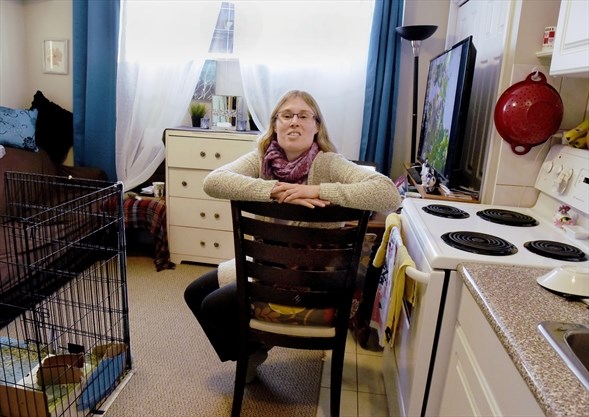Toronto.com: Residents worry Housing Now plan will not fix rental crisis in Etobicoke
Posted January 3, 2020
Toronto to build 771 units at Bloor-Kipling, 419 at Bloor-Islington
Posted January 3, 2019
 While Etobicoke resident Ria Rinne is hopeful about the affordable rental units being planned as part of Toronto’s Housing Now initiative, she wishes the city would define “affordable housing” in a different way.
While Etobicoke resident Ria Rinne is hopeful about the affordable rental units being planned as part of Toronto’s Housing Now initiative, she wishes the city would define “affordable housing” in a different way.
The initiative, which is one component of the city’s HousingTO Action Plan for 2020-2030, will provide more than 3,700 affordable units at 11 sites, including two sites in Etobicoke (at Bloor Street West and Kipling Avenue, and Bloor Street West and Islington Avenue).
The units will be priced based on a scale of Toronto’s average market rent.
Rinne, an ACORN (Association of Community Organizations for Reform Now) member, said she and the organization do not believe that average market rent is the best marker to determine affordability.
“We’re happy the municipality is trying to do something in terms of helping this affordability crisis, we’re pleased with that, but is it really, truly affordable? Will it meet our members and their needs?” she asked.
Rinne said a better approach would be a rent-geared-to-income model, through which a renter would spend 30 per cent of their income on housing.
“It’s not truly affordable unless people are paying 30 per cent of their income and no more than that,” she added. “We would like to even see deep affordability which is 10 per cent of a person’s income or lower.”
Sean Gadon, executive director of the City of Toronto’s Housing Secretariat, said 50 per cent of affordable rental units provided through the Housing Now project will be set at 100 per cent average market rent, whereas 40 per cent of units will be set at 80 per cent average market rent and 10 per cent of units at 40 per cent average market rent.
Average market rent in Toronto ranges from $1,089 for a bachelor to $1,664 for a 3-bedroom apartment.
Gadon added however, that the city will be encouraging development groups bidding on the project to provide greater affordability.
“On average, the units in the building will be no more than 80 per cent (average market rent) but depending on the client or the renter that would be served, there will be different gradations of rent,” Gadon said. “We know there’s tremendous demand in Etobicoke for affordable rental housing.”
In Etobicoke, 771 affordable units out of 2,300 total units are proposed for the Bloor-Kipling site, and 419 affordable units out of 1,250 total units are proposed for the Bloor-Islington site.
Currently, the least expensive units will be affordable to those earning $21,000 annually.
“The city is growing quickly, and the lack of housing need to be addressed now,” Etobicoke-Lakeshore Coun. Mark Grimes said in a statement to toronto.com.
“We’re always looking for opportunities to increase the supply of affordable units in Etobicoke-Lakeshore, but private land owners are only able and willing to do so much. These sites present a great opportunity to leverage city-owned land to increase that supply.”
Jasmin Dooh, health promoter community relations specialist at LAMP Community Health Centre, said while she has been impressed with the city’s recent action on housing — such as its efforts to reduce development fees and offer city-owned land for development — she thinks the Housing Now initiative is still not enough in terms of providing affordable options for many of the people she serves every day.
Like Rinne, Dooh advocates strongly for the rent-geared-to-income model.
“The rent-geared-to-income housing is the housing that we need,” she said. “Something is better than nothing, but I think we could improve our efforts and our percentages of getting people housing they can actually afford.”
Dooh added she would like to see more done at all levels of government, especially in terms of helping those on a fixed income or social assistance.
For people like Rochelle Rodney, who lives off Ontario Disability Support Program (ODSP) payments, Housing Now’s affordable units are still unattainable.
Rodney said she’s lucky to have been able to stay in her current apartment for seven years at a reasonable rate, adding that if she had to find another unit while on ODSP, she wouldn’t be able to.
“Who can afford that? I mean, I’m struggling on $1,000 a month with ODSP and paying for my expenses … I use the food bank and I don’t have cable,” she said. “The dial isn’t moving enough to actually make a difference for the majority of people living in the city who are working class.”
***
Article by Veronica Appia for Toronto.com
